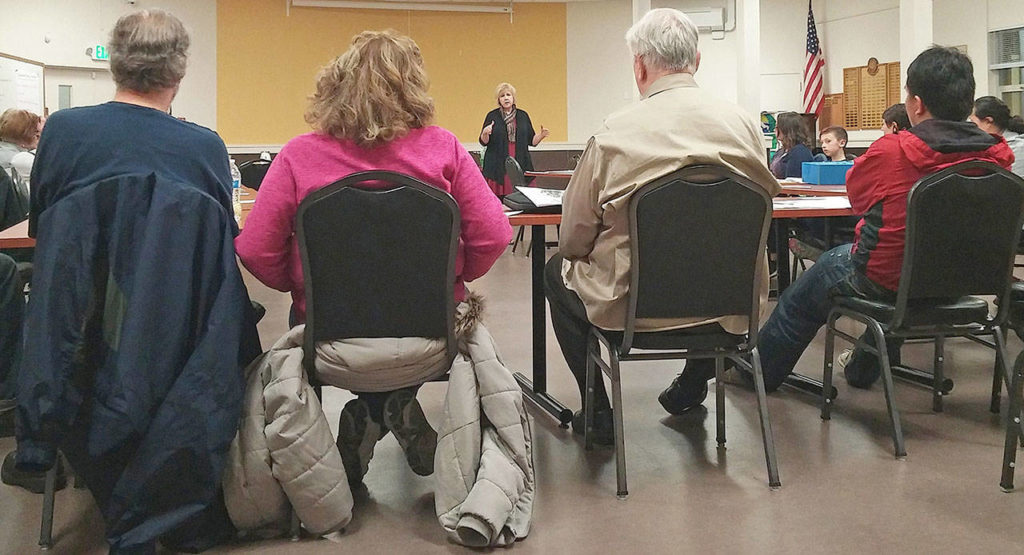EVERETT — Snohomish County is moving closer to placing 32 treatment beds at a site in north Everett.
The treatment center would serve those with addiction and mental illness. It would be incorporated into the Denney Juvenile Justice Center campus on 10th Street, an idea that’s drawn support from Mayor Cassie Franklin.
County officials on Tuesday provided an update on the project to the Delta Neighborhood Association. Construction could start next year, with an opening date targeted for 2020.
The treatment center would have separate doors from the juvenile lockup, and the underage detainees would have no sight or sound contact with the patients, who would be adults, said Cammy Hart-Anderson with the county’s human services department.
The project was awarded $12 million from the state capital budget. The county will contract with a service provider. The provider hasn’t been selected yet.
Operations will be funded by Medicaid reimbursements, Hart-Anderson said.
The county is working on a land-use application with the city of Everett, she said.
Denney does not see as many detainees as was once expected, she said. That’s largely because of reforms in juvenile justice and sentencing guidelines over the years.
“The research has shown there are better alternatives than locking up our adolescents,” Hart-Anderson said.
The city’s process also will involve a review by the hearing examiner, a public hearing, and notification to neighbors within 500 feet, according to the mayor’s office. The public hearing could take place in the next month or two.
The county has a critical shortage of inpatient treatment programs, Franklin said in a prepared statement Wednesday.
“This project is a great example of repurposing unused space to better serve the current needs of our community,” she said.
At Tuesday’s meeting, Delta neighbors asked whether patients would be discharged on the streets.
When patients leave treatment, they will be picked up by friends or family, or driven to Everett Station, Hart-Anderson said. That includes those who are leaving earlier than planned.
Most patients would stay about 30 days, she said. They would not be allowed to come and go from the campus.
“This will not be a detox program … people will have already detoxed before they come,” she said.
To follow federal rules, the center technically consists of two programs with 16 beds each. One of those might be designated for mental health treatment, according to handouts provided to neighbors. The center will focus on people who are considered indigent, low-income or working poor, Hart-Anderson said.
The proposed treatment site is one of several county efforts to combat addiction, homelessness and street crime. A new diversion center is supposed to open soon at 1918 Wall St., which formerly housed a work-release program. There also is talk of creating a hub for services at the former Carnegie Library building on the county campus.
Rikki King: 425-339-3449; rking@heraldnet.com. Twitter: @rikkiking.
Talk to us
> Give us your news tips.
> Send us a letter to the editor.
> More Herald contact information.


























